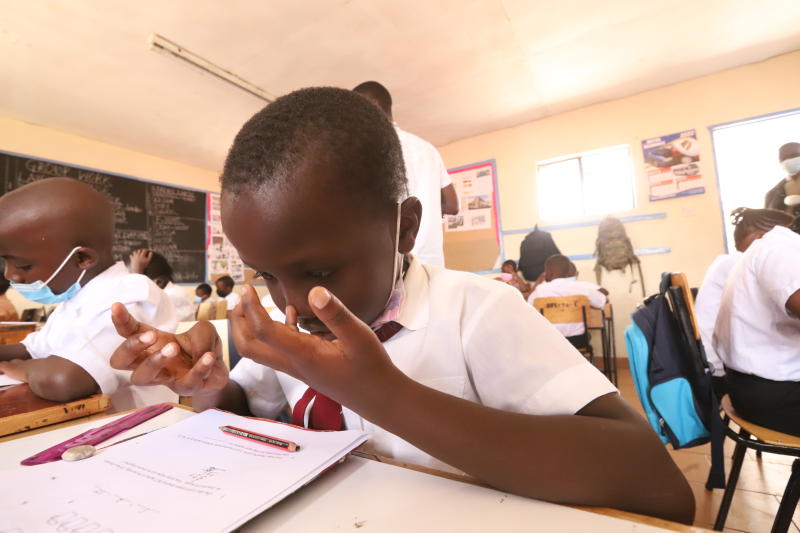×
The Standard e-Paper
Join Thousands Daily

A Grade 3 pupil at Kirawa Road School counts his fingers to solve mathematical exam questions during the nationwide CBC assessment examination on January 31, 2022.[Denish Ochieng, Standard]
Learners undertaking school-based assessments are expected to write short essay answers and do practical activities that are scored.